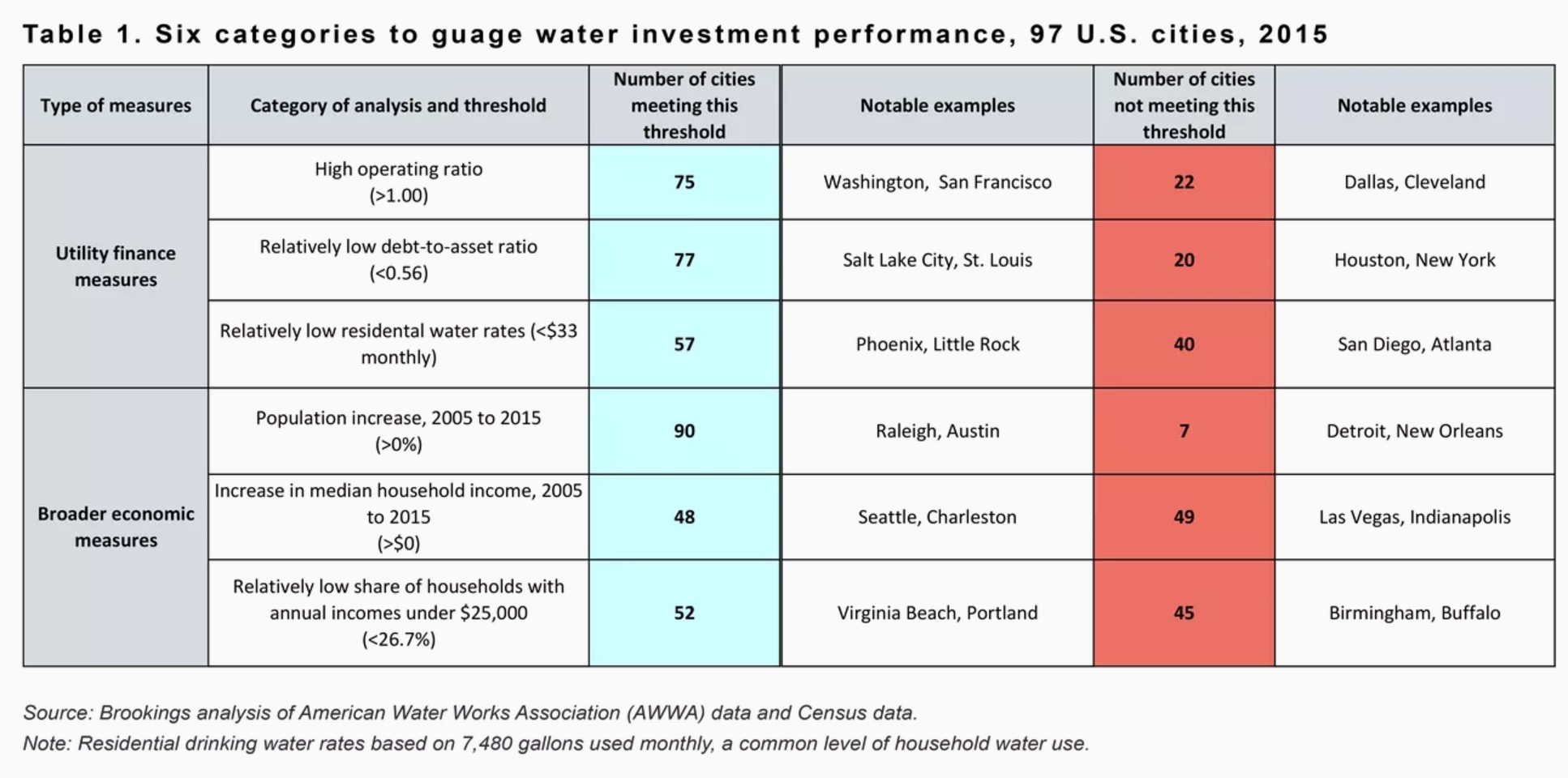
This brief describes the current context for local water infrastructure investment in the United States, with a particular focus on large drinking water utilities. As concerns continue to ripple from incidents in Flint, Mich. and beyond, cities remain at the forefront of many investment challenges, yet they often do not have a clear sense of where they stand relative to other markets. By examining how cities vary across three measures of utility finances— operational performance, long-term debt, and rates—and three broader economic measures affecting system performance—changes in population, changes in median household income, and the share of lower-income households—this brief attempts to paint a more complete picture of regional water investment.
View this complete post...











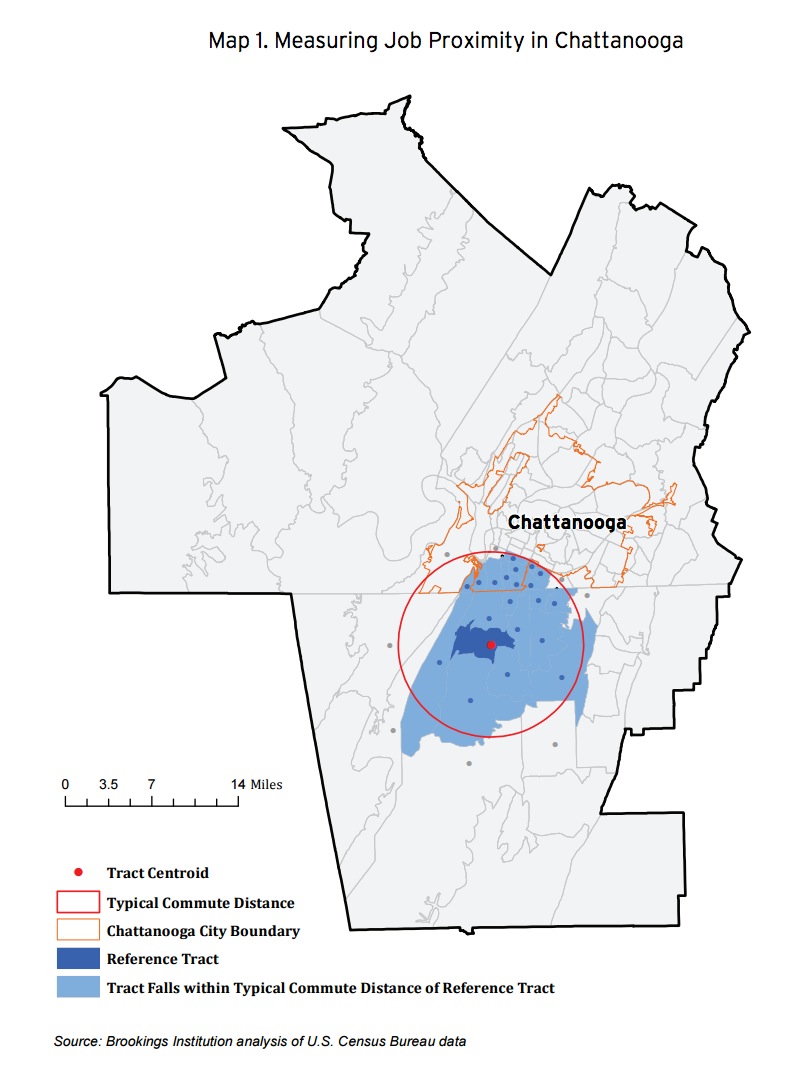

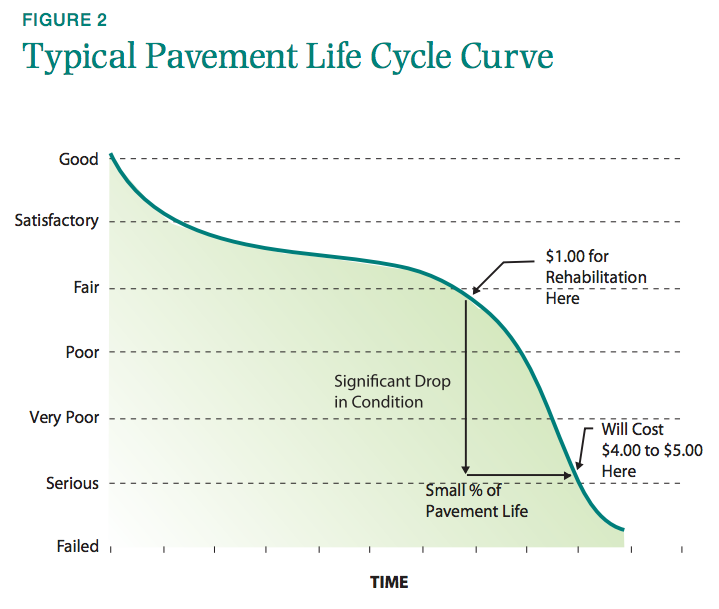

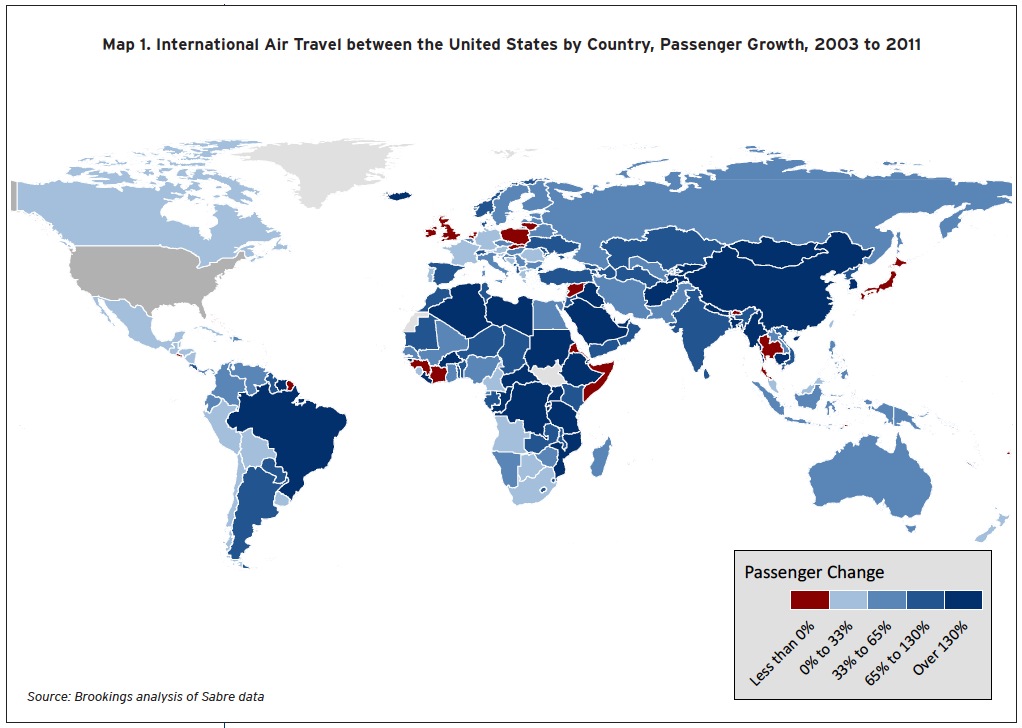
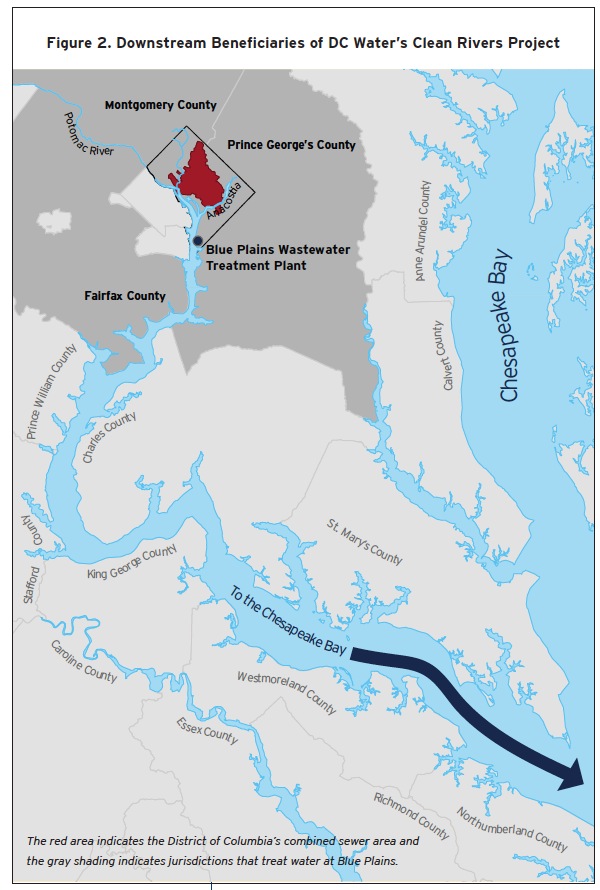

 RSS Feed
RSS Feed